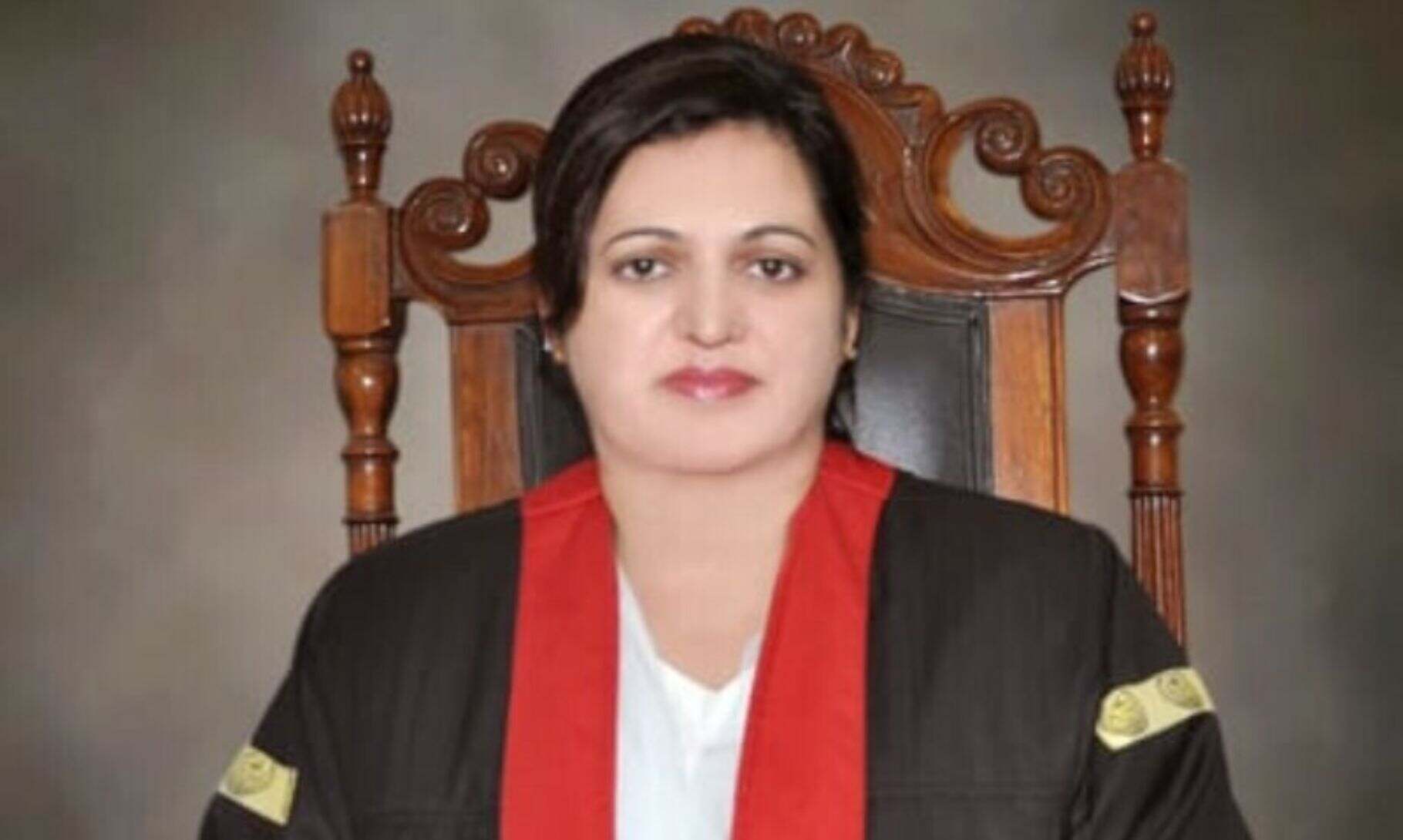In a landmark event for Pakistan’s judiciary, Justice Aalia Neelum took oath as the Chief Justice of Lahore High Court (LHC) on Thursday at the Governor’s House. This historic occasion marks the first time a woman has been elevated to the court’s highest position.
According to reports from Dawn, President Asif Ali Zardari approved Justice Neelum’s appointment a day prior to her swearing-in ceremony. The Judicial Commission of Pakistan (JCP), chaired by Chief Justice of Pakistan Qazi Faez Isa, had earlier endorsed her elevation alongside nominees Acting Chief Justice Shujaat Ali Khan and Justice Ali Baqar Najafi for consideration as LHC chief justice.
Oath Administration and Distinguished Attendees
Punjab Governor Sardar Saleem Haider Khan administered the oath of office in a ceremony attended by several distinguished LHC judges, including Justice Ali Baqar Najafi, Justice Abid Aziz Sheikh, Justice Syed Shahbaz Rizvi, and Justice Shams Mehmood Mirza. Notable figures present included Punjab Chief Minister Maryam Nawaz, Law Minister Azam Nazeer Tarar, and the inspector-general of Punjab.
Justice Aalia Neelum: Background and Career Achievements
Born on November 12, 1966, Justice Neelum holds an LLB degree from the University of Punjab and commenced her legal career as an advocate in 1996. She attained the status of advocate of the Supreme Court in 2008 and was appointed to the Lahore High Court in 2013, eventually becoming a permanent judge on March 16, 2015.
Throughout her judicial tenure, Justice Neelum has delivered 203 notable judgments. She notably served as the first woman administrative judge overseeing anti-terrorism courts across Punjab and played a pivotal role in establishing specialized courts for handling cases of gender-based violence. Her contributions also include formulating protocols for evidence recording in e-courts province-wide.
Progress Towards Gender Equality in Pakistan’s Judiciary
Justice Aalia Neelum’s appointment signifies a significant stride towards gender equality within Pakistan’s judiciary. Her elevation follows in the footsteps of other trailblazing women in Pakistan’s legal history, such as Justice Syeda Tahira Safdar, who became the first woman Chief Justice of the Balochistan High Court in 2018, and Justice Ayesha A. Malik, the first woman appointed to the Supreme Court in 2021.
This landmark appointment underscores Pakistan’s commitment to empowering women in key leadership roles and reflects broader efforts to ensure gender representation and equality within the judiciary.







